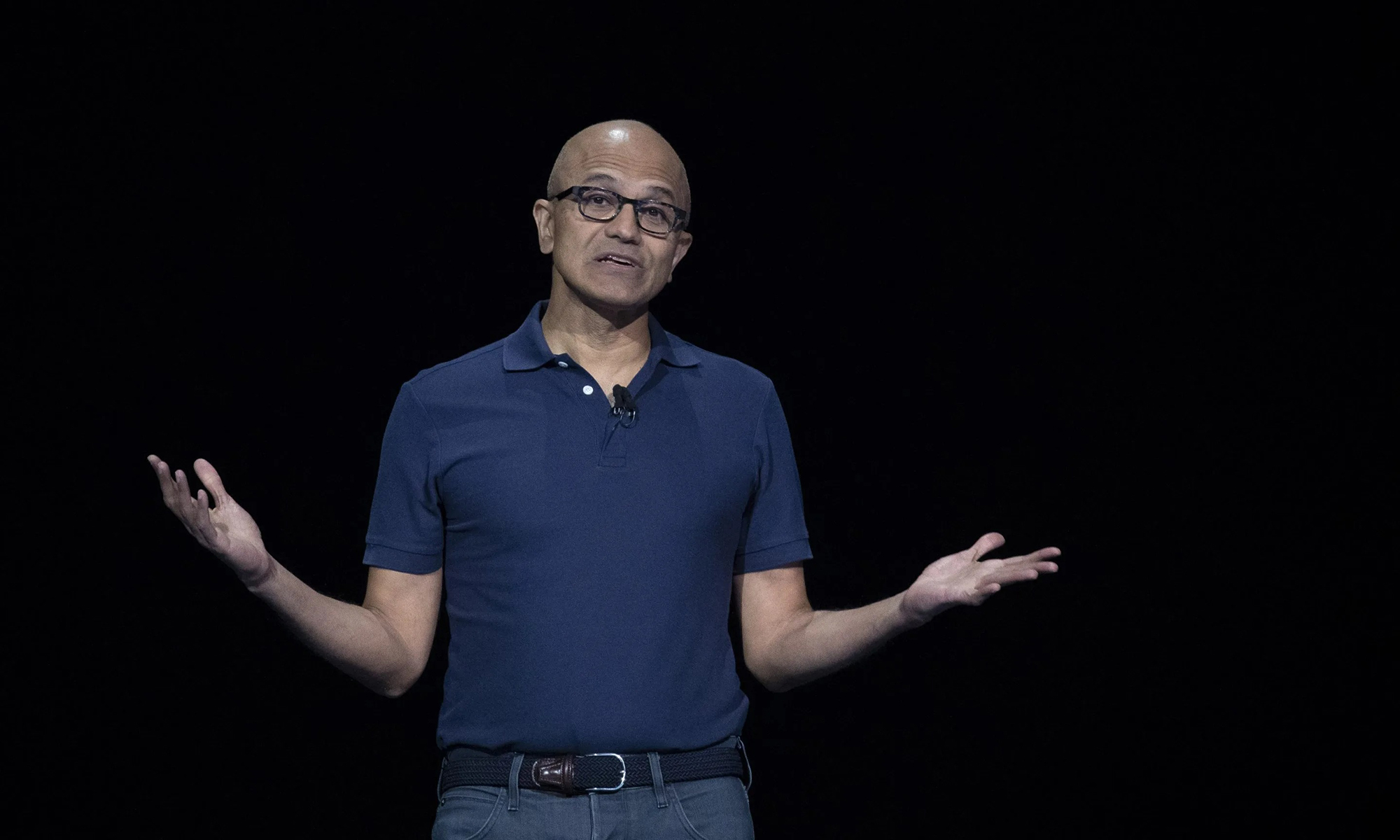
“效率焦慮”無時無刻不在折磨那些混合制工作的高管們。
微軟CEO薩蒂亞·納德拉本周一在雅虎財經(jīng)的全球市場峰會上表示,企業(yè)員工和老板對居家辦公的效率評價上存在分歧。他認(rèn)為,這個問題不能只用數(shù)據(jù)來評價。
就在一個月前,微軟剛剛發(fā)布了最新的《工作趨勢研究報告》。該報告訪問了11個國家的2萬人,將近所有受訪員工(87%)都表示,他們在居家辦工或者混合辦公時效率更高。難怪混合辦公被公認(rèn)是一種最節(jié)省成本而且最受歡迎的工作模式。
而85%的雇主則表示,當(dāng)員工不在辦公室時,他們很難對員工的生產(chǎn)力水平有信心。納德拉指出,這是一個悖論。
他表示:“我認(rèn)為解決這個矛盾最好的方法不是說教,而是拿出更多的數(shù)據(jù)。所以我們需要的不是爭論,而是讓數(shù)據(jù)來幫我們前進(jìn)。”
納德拉是這樣說的,也是這樣說的,微軟采取了混合辦公模式,員工有半數(shù)時間可以居家辦公,如果要超過這個時間,則需要管理層批準(zhǔn)。
為了緩解這種“效率焦慮”,一些老板開始越來越關(guān)注員工的行蹤。據(jù)《紐約時報》報道,在美國最大的10家私營企業(yè)中,有8家企業(yè)經(jīng)常根據(jù)毫無根據(jù)的指標(biāo)來評價員工的工作效率——比如寫一封電子郵件所需的時間和每個人敲鍵盤的次數(shù)等。
納德拉對此表示堅決反對。微軟現(xiàn)代化辦公副總裁賈里德·斯帕塔羅最近在《財富》上撰文指出:“雖然你通過跟蹤員工活動可以獲得很多數(shù)據(jù),但我可以自信地說,這些都是錯誤的數(shù)據(jù)。監(jiān)控員工不僅會產(chǎn)生有害的數(shù)據(jù),還會破壞信任。信任是企業(yè)成功的一個關(guān)鍵因素,一旦失去,就很難重新獲得。”
納德拉建議道,企業(yè)的管理者要做的不是監(jiān)控員工的行為,而是要回歸基本問題,也就是設(shè)定明確的業(yè)務(wù)目標(biāo)。
他表示:“作為領(lǐng)導(dǎo)者和經(jīng)理人,你一定要非常清楚公司或者團(tuán)隊的目標(biāo)是什么,要為人們?nèi)绾魏献骱蜏贤ㄔO(shè)定規(guī)范。”
至于如何確保協(xié)作效率,納德拉支持員工應(yīng)該經(jīng)常來辦公室工作幾天。有的公司出臺了一些吸引眼球的福利政策,納德拉認(rèn)為,這些都比不上線下辦公時人與人的交往的感覺。
他表示:“大家來是為了別人來的,而不是為了某個政策來的,是為了建立他們想要擁有的關(guān)系來的。而作為領(lǐng)導(dǎo)者,我們都必須學(xué)習(xí)一些軟技能,來促進(jìn)這些時刻的到來。”(財富中文網(wǎng))
譯者:樸成奎
“效率焦慮”無時無刻不在折磨那些混合制工作的高管們。
微軟CEO薩蒂亞·納德拉本周一在雅虎財經(jīng)的全球市場峰會上表示,企業(yè)員工和老板對居家辦公的效率評價上存在分歧。他認(rèn)為,這個問題不能只用數(shù)據(jù)來評價。
就在一個月前,微軟剛剛發(fā)布了最新的《工作趨勢研究報告》。該報告訪問了11個國家的2萬人,將近所有受訪員工(87%)都表示,他們在居家辦工或者混合辦公時效率更高。難怪混合辦公被公認(rèn)是一種最節(jié)省成本而且最受歡迎的工作模式。
而85%的雇主則表示,當(dāng)員工不在辦公室時,他們很難對員工的生產(chǎn)力水平有信心。納德拉指出,這是一個悖論。
他表示:“我認(rèn)為解決這個矛盾最好的方法不是說教,而是拿出更多的數(shù)據(jù)。所以我們需要的不是爭論,而是讓數(shù)據(jù)來幫我們前進(jìn)。”
納德拉是這樣說的,也是這樣說的,微軟采取了混合辦公模式,員工有半數(shù)時間可以居家辦公,如果要超過這個時間,則需要管理層批準(zhǔn)。
為了緩解這種“效率焦慮”,一些老板開始越來越關(guān)注員工的行蹤。據(jù)《紐約時報》報道,在美國最大的10家私營企業(yè)中,有8家企業(yè)經(jīng)常根據(jù)毫無根據(jù)的指標(biāo)來評價員工的工作效率——比如寫一封電子郵件所需的時間和每個人敲鍵盤的次數(shù)等。
納德拉對此表示堅決反對。微軟現(xiàn)代化辦公副總裁賈里德·斯帕塔羅最近在《財富》上撰文指出:“雖然你通過跟蹤員工活動可以獲得很多數(shù)據(jù),但我可以自信地說,這些都是錯誤的數(shù)據(jù)。監(jiān)控員工不僅會產(chǎn)生有害的數(shù)據(jù),還會破壞信任。信任是企業(yè)成功的一個關(guān)鍵因素,一旦失去,就很難重新獲得。”
納德拉建議道,企業(yè)的管理者要做的不是監(jiān)控員工的行為,而是要回歸基本問題,也就是設(shè)定明確的業(yè)務(wù)目標(biāo)。
他表示:“作為領(lǐng)導(dǎo)者和經(jīng)理人,你一定要非常清楚公司或者團(tuán)隊的目標(biāo)是什么,要為人們?nèi)绾魏献骱蜏贤ㄔO(shè)定規(guī)范。”
至于如何確保協(xié)作效率,納德拉支持員工應(yīng)該經(jīng)常來辦公室工作幾天。有的公司出臺了一些吸引眼球的福利政策,納德拉認(rèn)為,這些都比不上線下辦公時人與人的交往的感覺。
他表示:“大家來是為了別人來的,而不是為了某個政策來的,是為了建立他們想要擁有的關(guān)系來的。而作為領(lǐng)導(dǎo)者,我們都必須學(xué)習(xí)一些軟技能,來促進(jìn)這些時刻的到來。”(財富中文網(wǎng))
譯者:樸成奎
Productivity paranoia is still plaguing executives struggling with hybrid work.
Speaking at Yahoo Finance’s All Markets Summit on Monday, Microsoft CEO Satya Nadella said workers and their bosses continue to disagree over their respective at-home productivity levels. The argument, Nadella said, shouldn’t be hashed out based on anything but data.
His comments came a month after Microsoft released its latest Work Trends Study. Surveying 20,000 people across 11 countries, it found that nearly all (87%) of employees say they’re more productive when they work remotely or in a hybrid setup. It’s no wonder hybrid work is proven to be the most cost-effective and most popular model.
On the other hand, 85% of employers say it’s difficult to have confidence in their workers’ productivity levels when they’re not in-person. That’s a paradox, Nadella pointed out.
“I think the best way to bridge the paradox is not to have more dogma, but more data,” he said. “Instead of this being some kind of argument, let the data really help us move forward.”
Nadella practices what he preaches; Microsoft’s hybrid policy lets employees work remotely half the time—any time beyond that requires management approval.
To alleviate that paranoia, some bosses are doubling down on tracking their remote workers. According to the New York Times, eight out of the 10 largest private employers in the U.S. track often baseless productivity metrics, such as length of time required to write an email and individual keystrokes.
Nadella is staunchly against this. Any kind of employee tracking will only distract from the bottom line, Jared Spataro, Microsoft’s VP of modern work, recently wrote for?Fortune. “While you might get a lot of data from tracking this type of employee activity, I can confidently say it’s the wrong data,” he wrote. “And surveillance doesn’t just lead to bad data—it undermines trust, a critical factor in organizational success that, once lost, is incredibly difficult to regain.”
Rather than monitoring, Nadella encourages leaders to get back to basics: setting clear business goals.
“Really make sure that you’re very clear, as leaders and managers, about what the goals of the company or the team are, setting the norms for how people collaborate, and communicate,” he said.
As far as collaboration is concerned, however, Nadella is still a proponent for some days in the office—and he doesn’t think flashy new perks are any match against bonding when it comes to attendance.
“People come for other people, people don’t come [because of a] policy,” he said. “They come for the connection they want to have. We all have to learn soft skills, as leaders, to facilitate those moments.”






